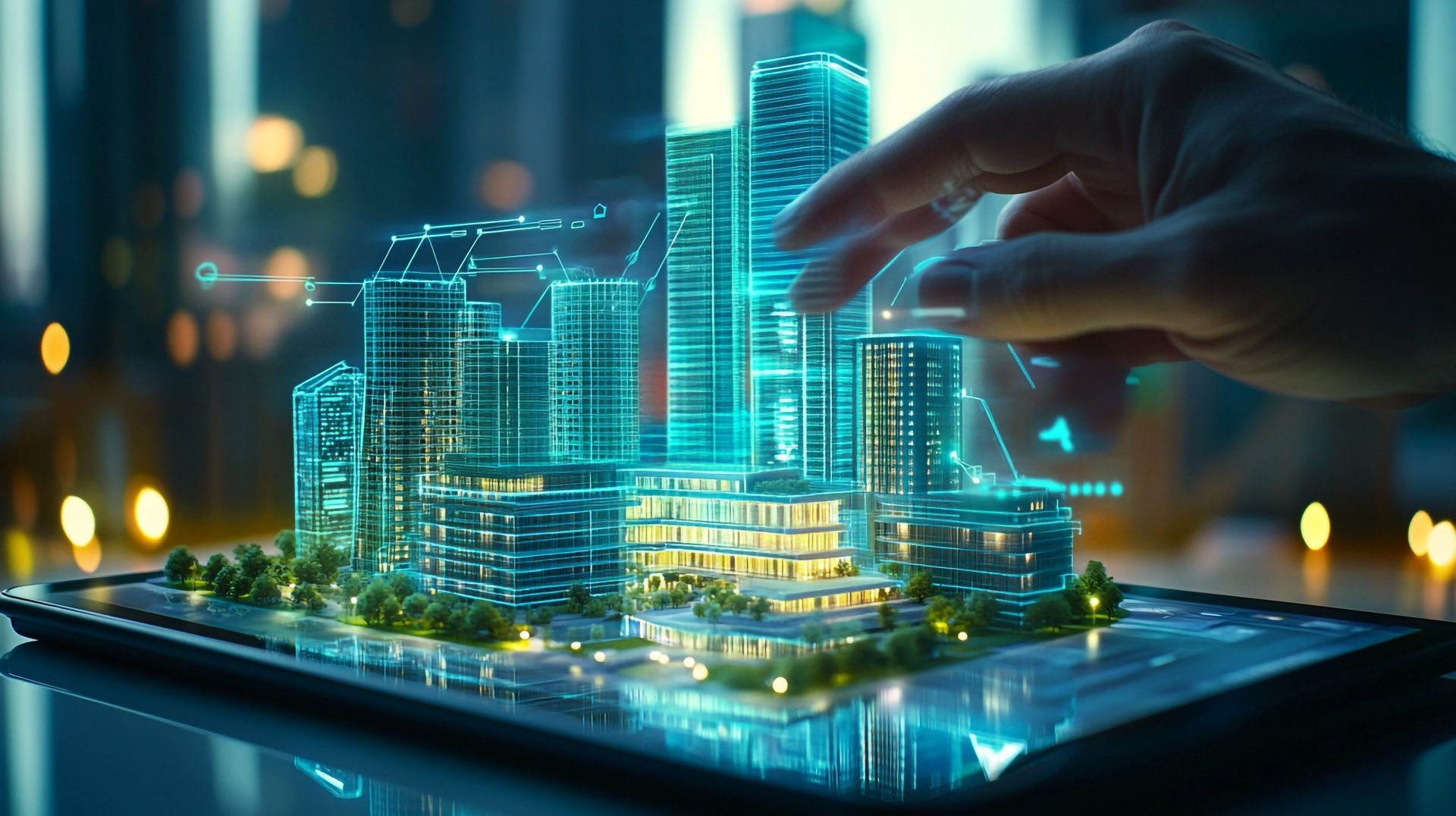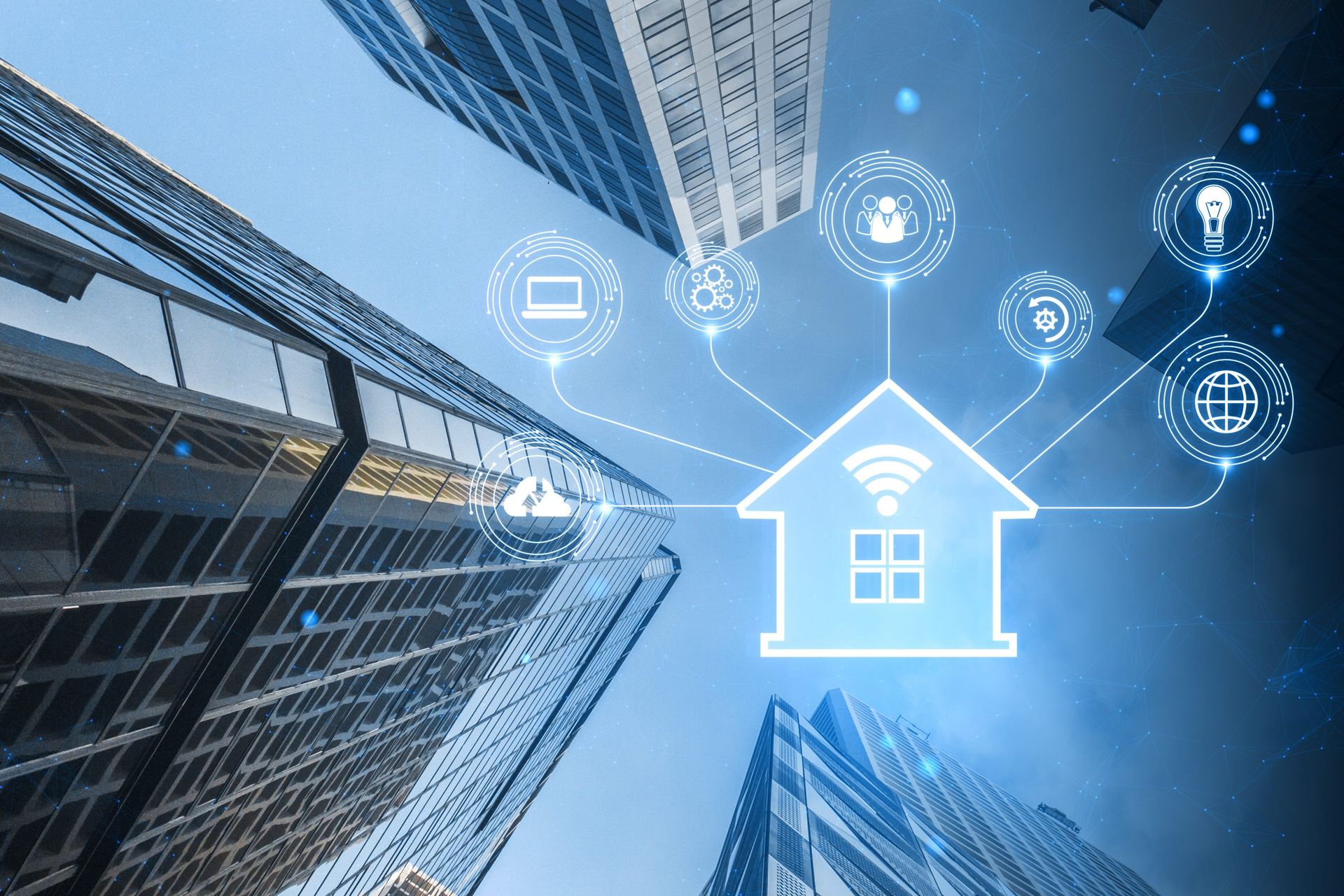What is a smart building?
A smart building is not just a physical structure, but an intelligent system that uses data to make building management more efficient, sustainable and cost-effective. This leads to significant potential energy savings and a reduction in CO₂ emissions, benefiting both the operator and the environment.

A smart building is a highly sophisticated, digitally networked building that combines a variety of technologies and systems to enable comprehensive and sustainable optimization of operational processes. Using the latest cloud technologies, the building is monitored in real time, allowing autonomous adjustment and optimization of the various functions and systems. This intelligent networking not only leads to the automation of processes, but also to considerable energy savings, as resources can be used more efficiently and deployed in a targeted manner.
In addition, innovative solutions such as the Internet of Things (IoT) enable flexible and individual adaptation of building use to the specific needs of users. For example, lighting conditions, room temperatures and other environmental conditions can be automatically regulated to maximize occupant comfort and productivity.
A smart building is not only a technical marvel, but also a step towards a more sustainable future. The integration of renewable energy, intelligent heating, ventilation and air conditioning (HVAC) systems and advanced security and monitoring systems not only reduces energy consumption, but also significantly improves the quality of life for users.
